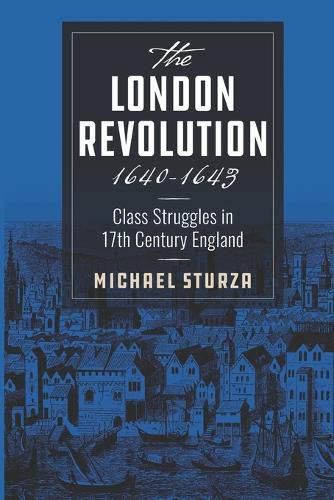Readings Newsletter
Become a Readings Member to make your shopping experience even easier.
Sign in or sign up for free!
You’re not far away from qualifying for FREE standard shipping within Australia
You’ve qualified for FREE standard shipping within Australia
The cart is loading…






Nominated for the Deutscher Memorial PrizeA Counterfire best book of 2022Select Praise: Feisty, fearless and fascinating! - Penelope J. Corfield, Fellow, Royal Historical Society (UK); President, International Society for Eighteenth-Century Studies 17th century England has much to teach us relevant to the 21st century. ... An excellent reader for students and the general public alike. - Marvin Surkin, co-author of Detroit: I Do Mind Dying
...Sturza's skillful analysis of the turbulent currents in London's political world, and his stress on the vital importance of its radical citizens, makes a valuable contribution. -- Bernard Capp, member British Academy, International Review of Social History
The London Revolution 1640-1643: Class Struggles in 17th Century England chronicles England's history through the revolution in 1641-1642, which toppled the feudal political system, and its aftermath. It explores how the growing capitalist economy fundamentally conflicted with decaying feudal society, causing tensions and dislocations that affected all social classes in the early modern period. In contrast with most other works, this book posits that the fundamental driving force of the revolution was the militant Puritan movement supported by the class of petty-bourgeois artisan craftworkers, instead of the moderate gentry in the House of Commons.
The London Revolution 1640-1643 further traces the detrimental effects of the political alliance between the free-trade Atlantic merchants and the gentry for the revolution. Despite the conservative and contradictory nature of the English bourgeois revolution, the experience in London is the original source for democratic ideas that were codified in the 1689 Bill of Rights and the U.S. Bill of Rights a century later.
Taken in its entirety, The London Revolution 1640-1643 refutes the virulent attacks on Marxist social class analysis spearheaded by revisionist historians who would rather write the concept of revolution out of history.
$9.00 standard shipping within Australia
FREE standard shipping within Australia for orders over $100.00
Express & International shipping calculated at checkout
Nominated for the Deutscher Memorial PrizeA Counterfire best book of 2022Select Praise: Feisty, fearless and fascinating! - Penelope J. Corfield, Fellow, Royal Historical Society (UK); President, International Society for Eighteenth-Century Studies 17th century England has much to teach us relevant to the 21st century. ... An excellent reader for students and the general public alike. - Marvin Surkin, co-author of Detroit: I Do Mind Dying
...Sturza's skillful analysis of the turbulent currents in London's political world, and his stress on the vital importance of its radical citizens, makes a valuable contribution. -- Bernard Capp, member British Academy, International Review of Social History
The London Revolution 1640-1643: Class Struggles in 17th Century England chronicles England's history through the revolution in 1641-1642, which toppled the feudal political system, and its aftermath. It explores how the growing capitalist economy fundamentally conflicted with decaying feudal society, causing tensions and dislocations that affected all social classes in the early modern period. In contrast with most other works, this book posits that the fundamental driving force of the revolution was the militant Puritan movement supported by the class of petty-bourgeois artisan craftworkers, instead of the moderate gentry in the House of Commons.
The London Revolution 1640-1643 further traces the detrimental effects of the political alliance between the free-trade Atlantic merchants and the gentry for the revolution. Despite the conservative and contradictory nature of the English bourgeois revolution, the experience in London is the original source for democratic ideas that were codified in the 1689 Bill of Rights and the U.S. Bill of Rights a century later.
Taken in its entirety, The London Revolution 1640-1643 refutes the virulent attacks on Marxist social class analysis spearheaded by revisionist historians who would rather write the concept of revolution out of history.